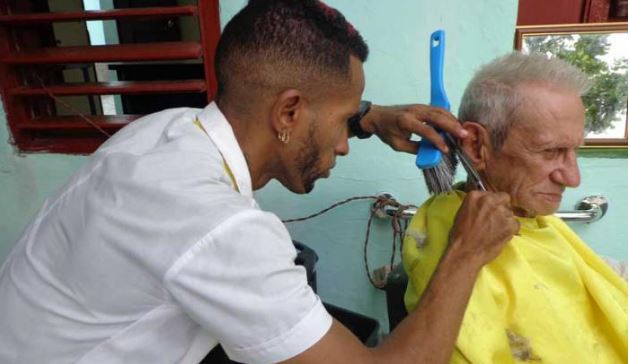
Citing ‘deviations,’ Cuba stops issuing licenses to some self-employed workers
To maintain better control over the work of “cuentapropistas” (self-employed entrepreneurs), the Cuban government has established new guidelines, the Communist Party daily Granma announced Tuesday (Aug. 1) in an extensive article.
According to official statistics, as of June 30, a total of 567,982 Cuban civilians worked for themselves, representing 12 percent of the nation’s employed workers. Private employment received the government’s blessing in October 2010.
“The validity of such a form of endeavor as an option of employment is unquestionable,” the article says. “Not only has it facilitated the process of labor reorganization but also has increased the supply of goods and services at acceptable levels of quality, and has gradually lightened the State’s burden, allowing it to concentrate on activities that are essential for Cuba’s economic development.”
Along with the praise comes a reminder that “for the past seven years, deviations have occurred in the implementation of the approved policy that have made it necessary to design measures aimed at perfecting that activity in general ways.”
Some of those “deficiencies” need to be corrected by “a systematic process of revision and perfecting,” to keep any activity from becoming illegal, the article explains.
“The latest evaluation of the performance of this sector revealed […] the use of raw materials, tools and equipment acquired illegally,” commented Marta Feíto Cabrera, deputy Minister of Labor. “Noncompliance with tax obligations persists and revenues are under-declared. There is a lack of timely solutions to the problems; lack of precision and insufficient control remain, and deficiencies are found in contracts for the supply of services or products.”
[Translation: pilferage, tax evasion, inattention to detail, sloppy work and noncompliance with contracts.]
The measures being adopted by the government “don’t constitute a step backward in the development of [private labor],” she continued. “They are meant to consolidate the organization and control of self-employed entrepreneurship, so it may continue to advance in an orderly and efficient fashion.”
Hereafter, no licenses will be issued for the jobs of “wholesaler of farm products,” “retailer of farm products,” and “street vendor of farm products,” as well as “buyer/seller of disks,” presumably CDs and DVDs. However, individuals who already hold licenses for these jobs may continue to perform them, and license applications pending will be processed routinely.
Some complementary tasks — such as barber, makeup specialist, masseur, manicurist, and hairdresser — will be grouped under one license to save the applicant money, reduce the paperwork and “broaden the profile of the activities,” Feíto Cabrera said.
Other changes to the existing regulations:
- No licenses will be granted to people who work in “places where criminal activities are detected.”
- The classification of “maker/seller of food and beverages in [private] restaurants” will be broken down into two jobs: “gastronomic services in restaurants” and “bar and recreational services.”
- An employer who takes time off due to illness or travel abroad may appoint one of his employees to stand in for him.
- Drivers who use their private vehicles as buses must have their vehicles inspected and their police records reviewed. Routes and fares must be clearly displayed; fares will be determined by the Ministry of Transportation.
- Private drivers may buy gasoline at reduced prices and will have access to wholesaler outlets for the purchase of tools, replacement parts and accessories at 20 percent below the retail prices.
For the time being, no new licenses will be issued for the following activities:
- Lessor of houses, rooms or spaces; coffee shops that sell light meals; auto-body worker; private contractor; maker/vendor of food and beverages in private restaurants; maker/vendor of food and beverages in cafeterias; cleaner/greaser of automotive equipment; intermediary in the sale, rental or exchange of dwellings; iron worker; blow-torch operator; dressmaker; tailor; maker or vendor of footwear; language teacher; repairman of electrical or electronic devices; computer programmer; construction, repair and maintenance of real estate.
To read the entire list of jobs for which no licenses will be issued (in Spanish), click here.
Paralizado el otorgamiento de algunas licencias para cuentapropistas


